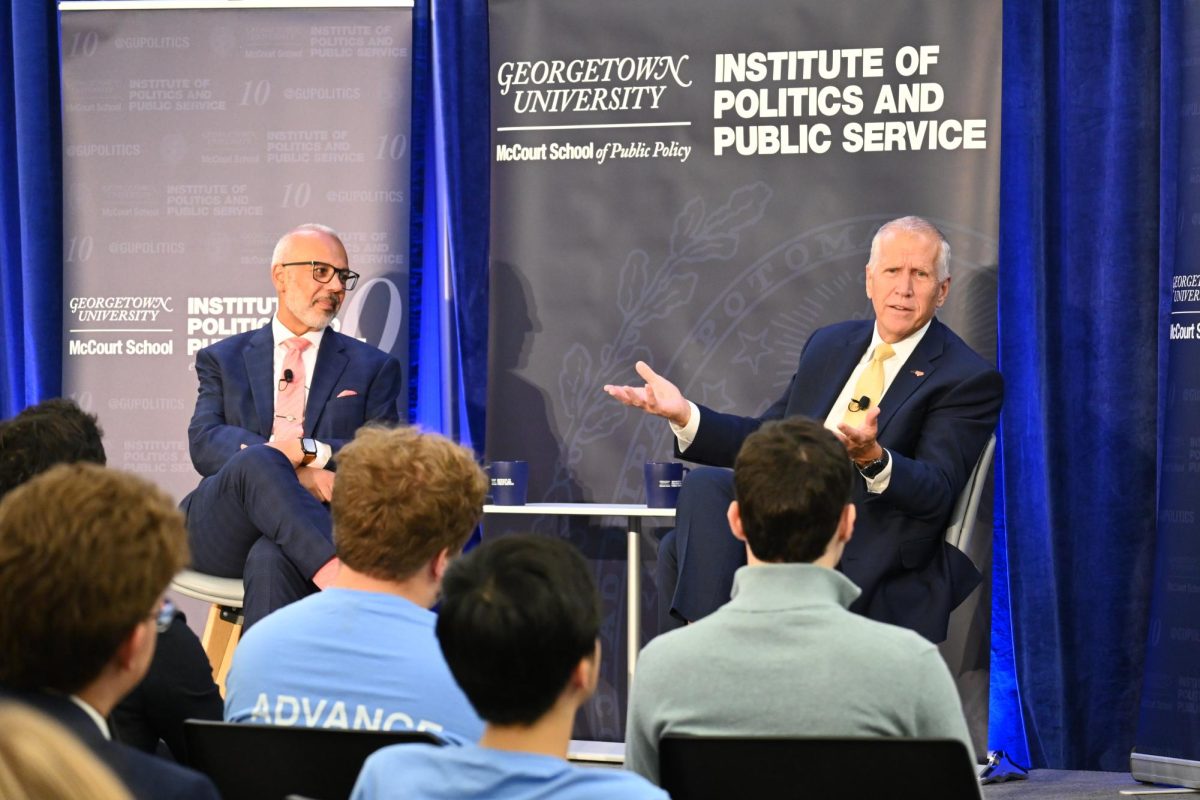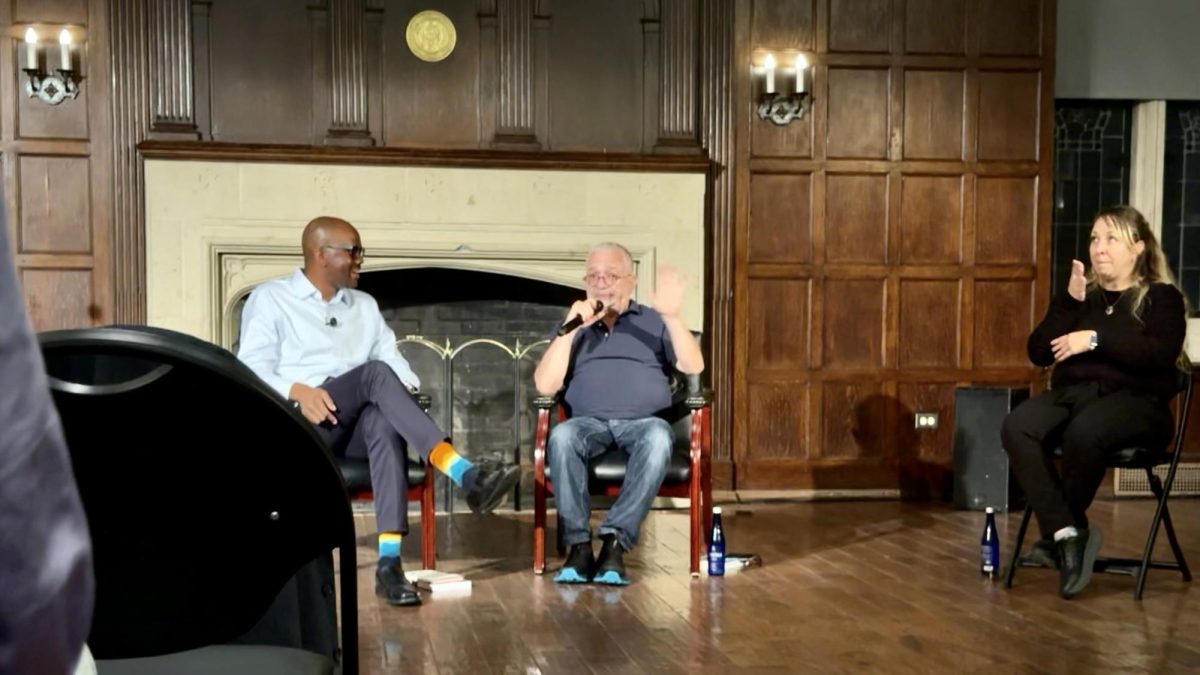A men’s health researcher urged men’s inclusion in reproductive conversations and addressed social and connection issues that men face at a Georgetown University event March 12.
Dominick Shattuck, a community psychologist at Johns Hopkins University who works on global public health topics and specializes in reproductive and men’s health, addressed issues in the men’s health sector and profiled how to redefine male interpersonal relationships in today’s world. Georgetown’s health and the public interest program (HAPI), a master’s course that trains students to work in a variety of interdisciplinary fields related to public health, hosted the event.
Shattuck said men and women often have different experiences at a doctor’s office when discussing reproductive health.
“When it comes to reproductive health, men’s experiences at the doctor’s office are significantly different from women — whether a woman goes into the doctor’s office because she twisted her ankle, or she has a headache, at some point they’re going to be asked this kind of battery of questions that include things like, ‘Are you sexually active?’ ‘When was your last period?’” Shattuck said at the event. “For men, nothing like that ever happens in the doctor’s office, and if it does, it’s a very unique situation.”
Shattuck added that these messages reinforce a nonactive role for men when thinking about pregnancy, childbirth and reproductive health.
“It fails to reinforce these kinds of messages, and instead leaves a big gap, right?” Shattuck said. “The way I view this is that it solidifies the reality that all these are women’s burdens to carry.”

Shattuck previously worked to provide family planning curriculum in Malawi with Save the Children, a global organization that works to improve the lives of children through humanitarian aid, educational programs and policy reform. The program revolves around a motivator, often a man in the community, who works with program designers and administrators to encourage the use of family planning services.
Shattuck said organizers designed the curriculum in light of intergenerational marriages in Malawi, which he said makes conversations around family planning more difficult, but added that the curriculum’s structure facilitates such dialogue.
“First, there’s the pitch for using family planning services by highlighting the information shared around the benefits of birth spacing and information around the different contraceptive methods and then, in session two, the motivator talks about his use of family planning and providing himself as a model,” Shattuck said.
“Session three, the motivator then works with the participant to practice role-play and kind of work through some activities to get them to practice using the words and the language around reproductive health,” he said.
Shattuck added that the results of the intervention were extremely positive.
“The women were saying things like, ‘I felt like I was included in the decision making after the intervention,’ where they said, ‘I felt like he was actually listening to me,’” Shattuck said. “And we all know how hard relationships can be, but improving these couples’ interactions with one another in such positive ways can be impactful, not just for this aspect of their life, but for other aspects of their lives as well.”
“So working with the men, providing them with the language, normalizing the conversation around reproductive health and helping encourage them and helping them have the conversation with their partners was an effective way in which to intervene and build the skill sets related to reproductive health rules and contraception,” Shattuck said.
Frances DeCleva (GRD ’25), a student in the HAPI program who introduced Shattuck at the event, said Shattuck’s work has a real impact on communities around the globe.
“His multifaceted work reflects the real-world applied projects he’s undertaken, including the development of the first mobile game promoting reproductive health,” Decleva said at the event. “He also partnered with Meta during the pandemic to disseminate real-time data of more than 55 million responses through the COVID behaviors dashboard.”
Shattuck said the beliefs instilled in men from a young age can have negative impacts on their health, but added that helping foster communication can counteract these effects.
“Men who subscribe to traditional masculine beliefs are more likely to avoid preventative screenings, more likely to not have primary care providers, not meet their elected appointments, refuse psychological care, have a higher medical mistrust and, most importantly, they become increasingly socially isolated as they mature,” Shattuck said.
“Skills related to communication have the power to transform the behaviors of men,” Shattuck said. “Aspects of these interventions need to be embedded within programs across the larger public health agenda.”







